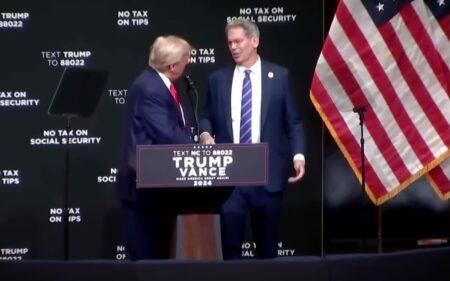Jacobi Asset Management has achieved a significant milestone by introducing Europe’s first spot Bitcoin ETF on Euronext Amsterdam.
This ETF is not only groundbreaking for its pioneering status but also for its commitment to environmental, social, and governance (ESG) standards. Specifically, the ETF is touted as the first decarbonized digital asset fund that aligns with SFDR Article 8. To achieve this, Jacobi has integrated a Renewable Energy Certificate (REC) solution, enabling institutional investors to harness the benefits of Bitcoin while simultaneously meeting ESG targets.
The ETF, which operates under the ticker “BCOIN”, is regulated by the Guernsey Financial Services Commission. Fidelity Digital AssetsSM is responsible for custodial duties, with Flow Traders serving as market makers. Jane Street and DRW have been appointed as the Authorized Participants. The ETF’s benchmark is derived from the FT Wilshire Bitcoin Blended Price Index, courtesy of Wilshire Indexes. The innovative REC solution was conceptualized and executed in partnership with the digital asset platform, Zumo.
According to a report by ETF Express, Martin Bednall, the CEO of Jacobi Asset Management, expressed his enthusiasm about Europe’s forward-thinking approach in facilitating institutional Bitcoin investments through familiar and regulated structures like ETFs. He emphasized the uniqueness of their fund, which directly owns the underlying asset, in contrast to some European products that function as debt instruments. Bednall also expressed gratitude for the support from leading partners in the digital asset market evolution and underscored Jacobi’s dedication to offering a pioneering and eco-conscious solution for European investors.
Furthermore, in a conversation with Decrypt, Jacobi emphasized the ETF’s open-ended nature, marking a departure from the prevalent exchange-traded notes (ETNs) that have dominated Europe’s crypto-backed financial instruments. The distinction is crucial: ETF shareholders own a piece of the fund’s underlying assets, while ETN investors hold a debt-security. Bednall pointed out the enhanced investor protection offered by ETFs, which are approved and monitored by regulators. Unlike ETNs, which might incorporate leverage or derivatives, ETFs are devoid of such elements, reducing the risk of market manipulation.
Mark Makepeace, the CEO of Wilshire Indexes, conveyed his excitement about partnering with Jacobi. He views the launch of the Jacobi FT Wilshire Bitcoin ETF as a transformative event for the global financial landscape. Wilshire Indexes, renowned for developing institutional-grade digital asset benchmarks, is committed to fostering the growth of the entire digital asset domain.
The ETF’s design caters to ESG-focused investors, allowing them to incorporate Bitcoin in their portfolios and independently verify the environmental claims. Instead of merely offsetting carbon emissions, Jacobi’s approach involves assessing the electricity consumption associated with the Bitcoin in the ETF. They then purchase equivalent RECs, which serve as standardized instruments for acquiring clean energy. This method ensures a transparent digital record of RECs on a blockchain.
Kirsteen Harrison, Zumo’s Environmental Manager, emphasized the pressing need to decarbonize the crypto sector. She acknowledged the increasing demand for businesses to present credible decarbonization strategies. Harrison expressed her excitement about collaborating with Jacobi Asset Management to develop an ESG-aligned crypto solution, culminating in the unveiling of Europe’s pioneering Bitcoin ETF.
Emanuel van Praag, a legal expert at Kennedy Van der Laan, confirmed their role in offering legal guidance to Jacobi AM during the ETF’s listing process, emphasizing its distinction as the first SFDR Article 8 digital assets fund.







